Granite kitchen countertops are renowned for their durability, beauty, and timeless appeal. When it comes to their thickness, granite countertops typically range from 1¼ to 1½ inches thick. However, the thickness can vary depending on several factors, including personal preference, design considerations, and the specific requirements of the installation. Thicker granite countertops, such as those measuring 2 inches or more, are also available and are often used for custom or specialty applications.
The thickness of granite countertops is an important consideration when selecting the right countertop for your kitchen. Thicker countertops can provide a more substantial and luxurious look, while thinner countertops offer a sleeker and more contemporary aesthetic. Additionally, the thickness of the countertop can impact its durability and performance over time.
In terms of installation, the thickness of granite countertops can affect the overall weight and stability of the countertop. Thicker countertops may require additional support or reinforcement to ensure proper installation and long-term durability. Homeowners should work with experienced professionals to determine the appropriate thickness for their specific kitchen layout and design.

Another factor to consider when choosing the thickness of granite countertops is the edge profile. Thicker countertops allow for more intricate edge profiles, such as bullnose, ogee, or beveled edges, which can add visual interest and elegance to the countertop. Thinner countertops may be limited in terms of edge profile options, but they can still be customized to achieve the desired look and feel.
When selecting the thickness of granite countertops, it’s essential to consider both aesthetic and practical factors. Thicker countertops may require a larger budget due to the additional material and labor costs, but they can also add value and longevity to the kitchen. Thinner countertops may be more budget-friendly and easier to install, but they may not offer the same level of durability and visual impact as thicker countertops.
Common mistakes to avoid when considering the thickness of granite kitchen countertops include neglecting to consider the available space. Before adding a tiny kitchen island, it’s essential to carefully measure the available space and consider the layout of the kitchen. Failing to account for space constraints can result in an island that feels cramped and obstructive rather than functional. Additionally, overcrowding the island with unnecessary features can detract from its usability and aesthetics. It’s important to prioritize the most essential features and avoid adding unnecessary elements that clutter the space.

Another common mistake is underestimating the importance of mobility. In a tiny kitchen, flexibility and mobility are key. Choosing a tiny island with wheels or casters allows for easy movement and repositioning, making it more versatile and adaptable to different tasks and activities. Ignoring storage solutions is also a common mistake. Storage is often at a premium in tiny kitchens, so it’s important to incorporate ample storage options into the design of a tiny island. This could include shelves, drawers, or cabinets for storing kitchen essentials and utensils.
Finally, forgetting about functionality is a mistake to avoid. While aesthetics are important, functionality should always be a top priority when designing a tiny kitchen island. It’s essential to consider how the island will be used daily and ensure that it meets the practical needs of the kitchen.
Tiny kitchen islands offer practical and stylish solutions for maximizing space and functionality in small kitchens. With a wide range of design options available, homeowners can customize their tiny islands to suit their needs and preferences while enhancing the overall look and feel of their kitchen space. By avoiding common mistakes and carefully considering factors such as space, mobility, storage, and functionality, homeowners can create tiny kitchen islands that are both functional and aesthetically pleasing additions to their homes.
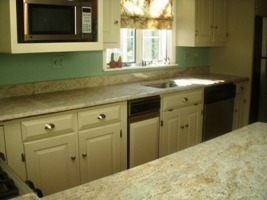
Common mistakes to avoid when considering the thickness of granite kitchen countertops include:
Not considering the weight of the countertops: Thicker granite countertops are heavier than thinner countertops and may require additional support or reinforcement to ensure stability and safety. Failing to account for the weight of the countertops during installation can lead to structural issues and safety hazards.
Overlooking the impact on the overall design aesthetic: The thickness of granite countertops can significantly impact the overall design aesthetic of the kitchen. It’s important to choose a thickness that complements the style and scale of the kitchen space to achieve a cohesive and visually appealing look.
Neglecting to discuss edge profiles with the installer: Thicker granite countertops allow for more intricate edge profiles, which can enhance the beauty and elegance of the countertop. It’s important to discuss edge profile options with the installer to ensure the chosen thickness is compatible with the desired edge profile.
Underestimating the importance of proper installation: Proper installation is essential for ensuring the durability and longevity of granite countertops, regardless of their thickness. It’s important to work with experienced professionals who have the skills and expertise to install the countertops correctly and safely.
Failing to consider long-term maintenance and care: Thicker granite countertops may require additional maintenance and care to keep them looking their best over time. It’s important to follow the manufacturer’s recommendations for sealing, cleaning, and maintaining the countertops to ensure they remain in optimal condition for years to come.
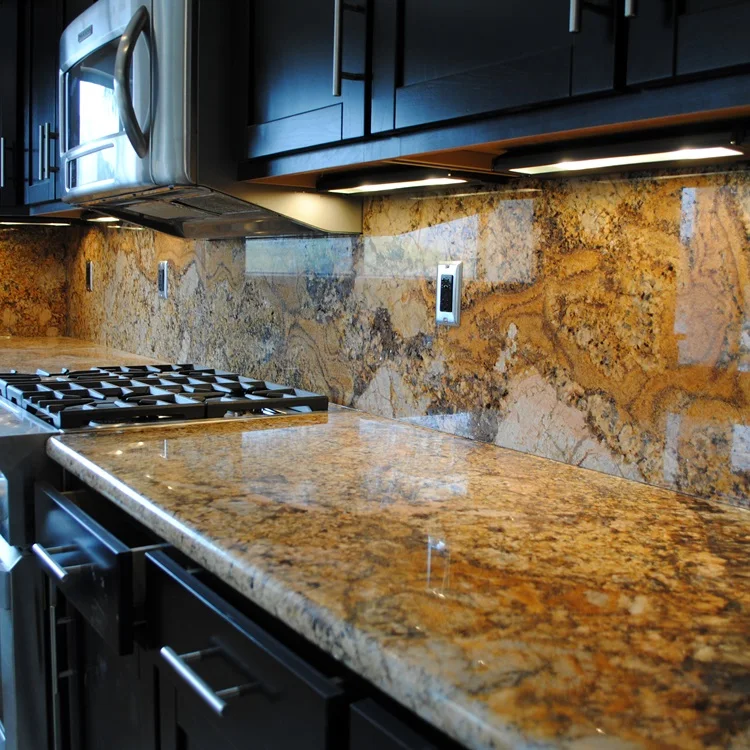
Can granite countertops be customized to a specific thickness?
Yes, granite countertops can be customized to a specific thickness based on the homeowner’s preferences and design requirements. Thicker countertops are often used for custom or specialty applications, while thinner countertops are more common in standard installations.
How does the thickness of granite countertops affect their durability?
Thicker granite countertops are generally more durable and resistant to wear and tear than thinner countertops. The additional thickness provides added strength and stability, making them less prone to cracking, chipping, or breaking under heavy use.
Are thicker granite countertops more expensive than thinner countertops?
Yes, thicker granite countertops are typically more expensive than thinner countertops due to the additional material and labor costs involved in their production and installation. Thicker countertops also require more precise cutting and shaping, which can increase the overall cost.
What edge profiles are available for granite countertops?
Granite countertops can be customized with a variety of edge profiles, including bullnose, ogee, beveled, and eased edges. Thicker countertops allow for more intricate edge profiles, while thinner countertops may be limited in terms of edge profile options.
How can I determine the appropriate thickness for my granite countertops?
The appropriate thickness for granite countertops depends on several factors, including personal preference, design considerations, and the specific requirements of the installation. It’s important to work with experienced professionals who can provide guidance and recommendations based on your specific needs and preferences.
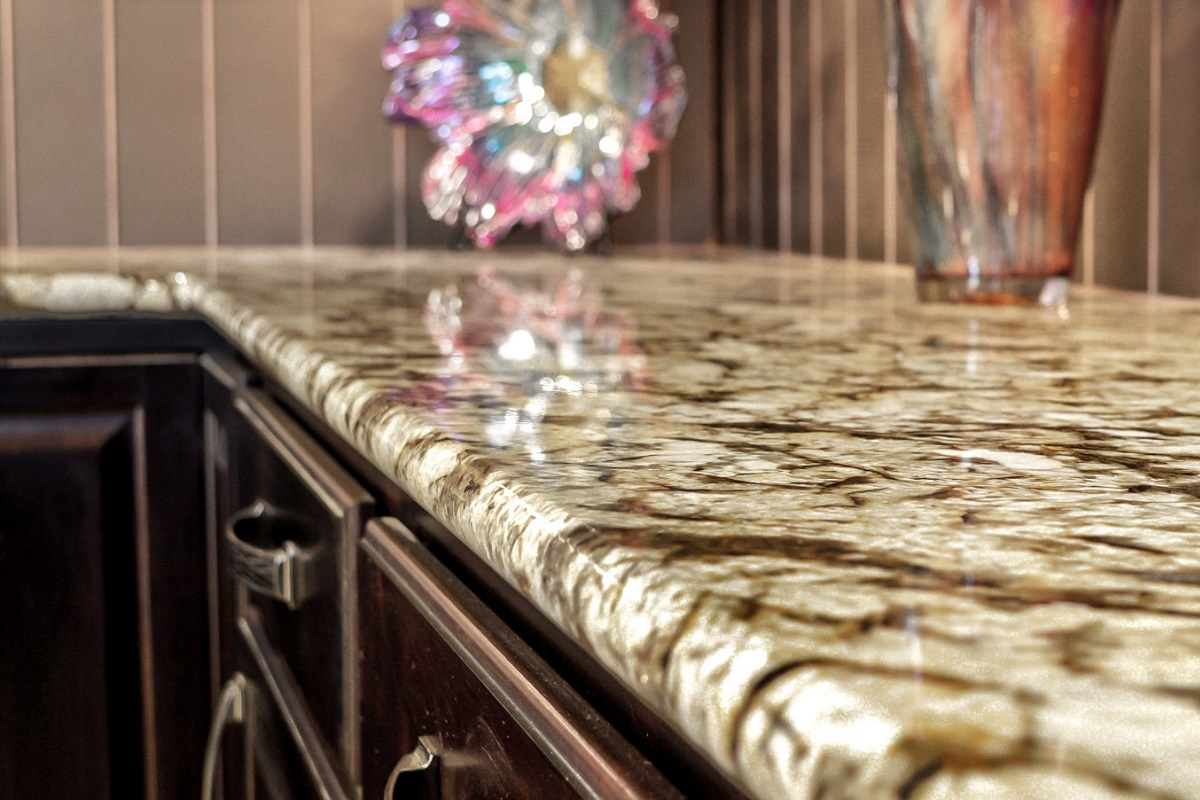
Kitchen Remodeling – Kitchen granite countertops, quartz countertops, marble countertops
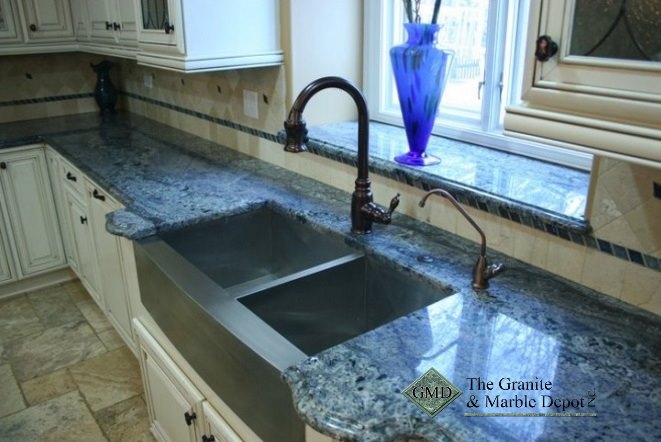
A New Year’s resolution for a more beautiful kitchen: Weighing in o – CultureMap Houston
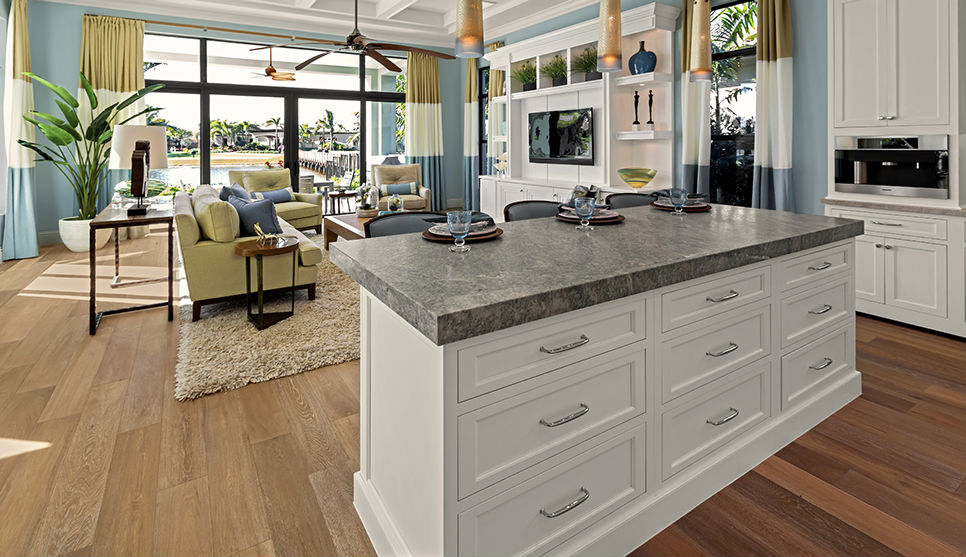
I will be sharing the steps on installing the granite and backspash on another day.

Granite Kitchen Countertops
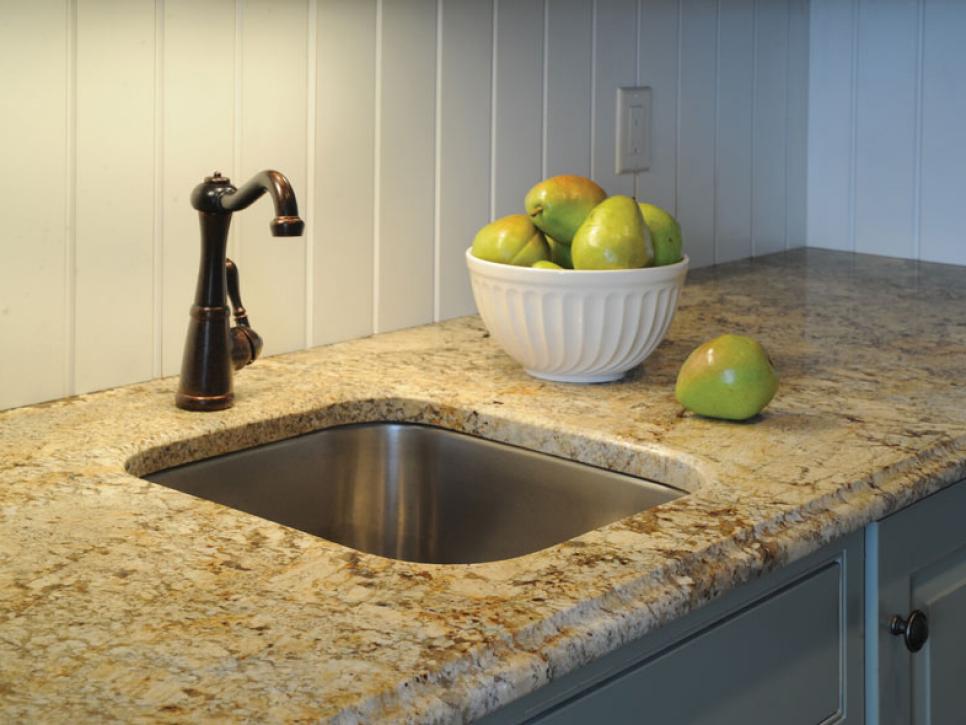
Delicatus White Granite

Alternatives to Granite Countertops, Part II

Bianco Antico Granite Countertops (Pictures, Cost, Pros and Cons)
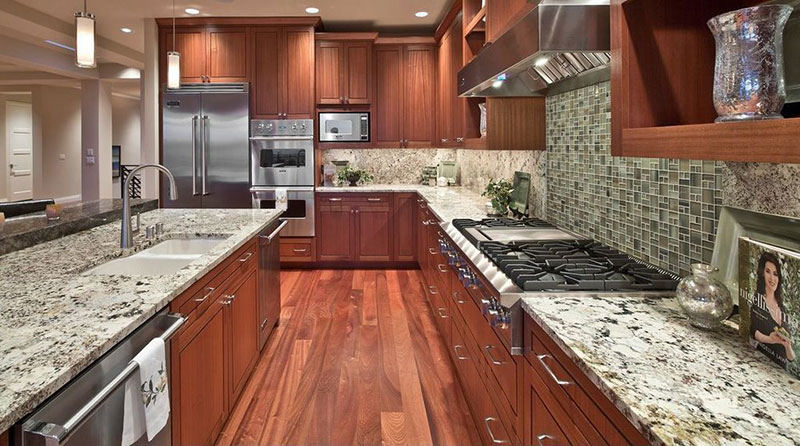
Related Posts:
- What Is The Best Kitchen Countertop To Buy
- Kitchen Countertops New York
- Can You Paint A Laminate Kitchen Countertop
- Average Cost Of Granite Kitchen Countertops
- Refinish Corian Kitchen Countertops
- Wood Laminate Kitchen Countertops
- DIY Kitchen Island Countertop
- How To Change Your Countertops In The Kitchen
- Outdoor Kitchen Wood Countertops
- Formica Laminate Kitchen Countertops